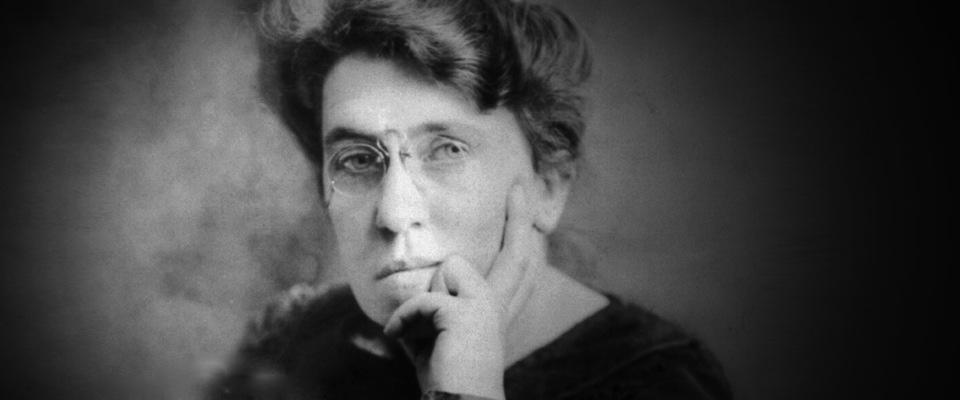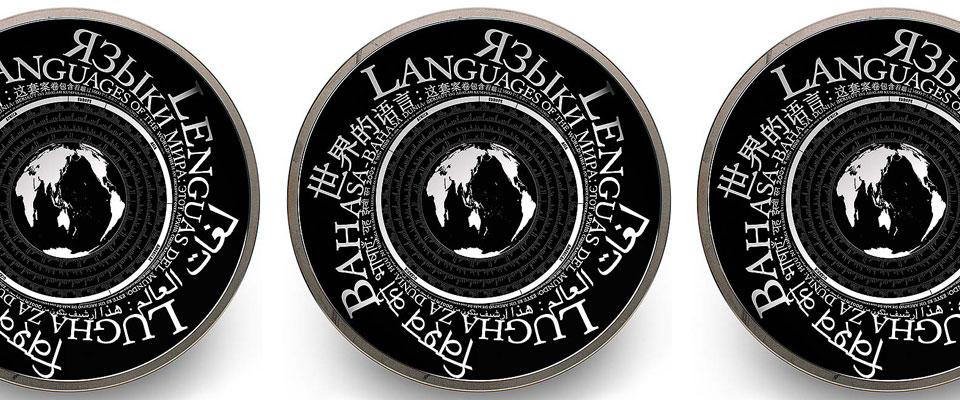Things are looking up a bit for the Emma Goldman Papers Project, a long-running effort to archive the letters and ephemera documenting the vivid life and heady times of the eponymous radical immigrant, feminist and anarchist. Publicity about the project’s imperiled condition has generated a wave of financial support that will keep it going at least through June.
As CALIFORNIA reported last month, UC Berkeley has officially pulled away from the project: UC Berkeley Associate Chancellor Nils Gilman explained that Cal had provided support for a quarter century, but that state support for the university has dwindled over time, and that continuing to spend money on it meant denying funds to other worthy enterprises. The project’s supervising archivist, Candace Falk, called the loss of university support devastating—noting Goldman’s significance to American political history, and contending that the archivist’s road is long and circuitous in the best of circumstances.
“The seventh volume of the Martin Luther King papers took seven years to complete,” says Falk, who acknowledged that she initially expected the work to take a couple of years, and that it has been 35. “This is very time-consuming work, but we really do think we can finish in a year or so. Our problem now is that we have to raise funds while we’re simultaneously trying to finish the project. It’s incredibly stressful.”
Falk’s dilemma struck a chord among Goldman admirers. She recently received a contribution of $25,000 from a donor she describes as a “prominent Canadian feminist,” and smaller contributions also have dribbled in. Some young anarchists she met at a conference held at the San Francisco-based California Institute of Integral Studies recently held a raffle for the project.
“Somebody donated three bottles of mead, and the students came into our offices the next day and gave us the $120 they raised,” says Falk. “They were incredibly sweet. People have such an inaccurate take on anarchists, especially anarchist Millennials. Their basic issue is distrust of the relationship between government and business; they want a different life.”
Falk also has found other ways to stretch her budget, including a deal with San Francisco-based Internet Archive to digitize 22 thousand Goldman-associated documents now on microfiche.
“We couldn’t pay for it, and we were turned down for a National Endowment for the Humanities preservation grant—the documents were already considered ‘preserved’ because they were on microfiche,” Falk says. “But in this day and age, you need to have archival documents digitized. So Internet Archive is digitizing our papers in exchange for a like number of hours from us scanning books for them.”
Nor is the project’s association with UC Berkeley completely severed. While Falk and her crew no longer receive direct funding from the school, student researchers still participate under a university imprimatur, and the archivists maintain access to the university library.
“We operate under 60-day notices (from the university),” Falk says. “The university monitors our funding to ensure that we can pay the rent, utilities, salaries, health care and so forth.”
She and her small staff keep plugging away, hoping the Damoclean sword poised over their necks doesn’t fall before they finish the project.
“Right now, our student researchers and editorial staffers are concentrating on completing the fourth volume of papers (The War Years: 1917-1919),” says Falk. “We’re also looking for a permanent home for our entire collection. Everything is crammed into our tiny office on Channing Way. We’ve been talking to university and private libraries, including the New York Public Library. We’re determined to make it through to the end.”
A website offers contributors to the project various “Emmarabilia,” including an “Emma Goldman police mugshot mug.” Yet recent contributions notwithstanding, it isn’t clear if the archivists can wrap things up before the money runs out.
“Everyone else at the project is pushing through with tremendous and positive energy,” Falk says. “And we’re getting so much emotional and moral support, and so many accolades wherever we go. Six (UC Berkeley) librarians visited our offices the other day, and they were really impressed with the project, and extremely concerned about our situation. But it’s so hard to stay focused when you’re worried you might not be able to pay the rent month-to-month. I hate to say it, but I had to leave the office early today. I just felt so bad I couldn’t work.”



















